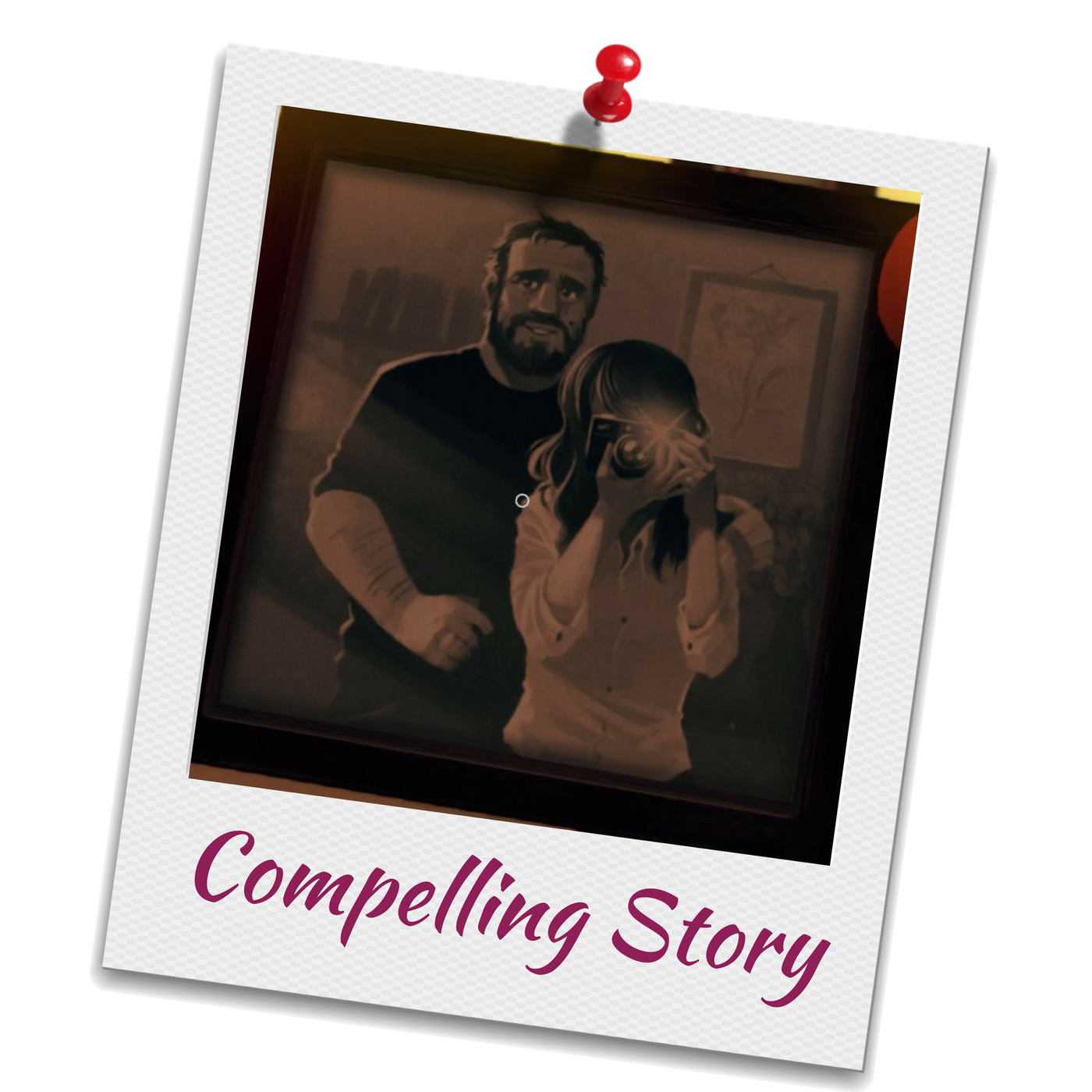Summary: 3.5/5.0
Firewatch tells a tragic story of loss-- of both the unavoidable and cowardly varieties. Firewatch shines in its writing, character development, and soundtrack. However, the frequent bugs, clumsy implementation of limited mechanics and dissatisfying conclusion can make this story-- though certainly worthwhile and mostly well-told-- a difficult one in which to immerse yourself.
Story
The majority of this game, including the dialogue, has exceptional writing (and voice acting). The game begins with a tragic but brief prologue about the personal history you are trying to escape with your new summer job. You (Henry) are shortly thereafter introduced via radio to your supervisor (Delilah). Henry and Delilah are delightfully genuine and flawed. Their conversations are immediately capturing of your attention and empathy, though their stories are experience indirectly. There are very few direct character interactions in this game, but fortunately the game succeeds in avoiding the impression of an empty world. There were several times where I hesitated rounding a corner for fear of what -- or who -- I might see.
Environment
The world of Firewatch is beautiful, even when it starts to burn. The passage of time is denoted with subtle changes in lighting and environmental markers as you progress through the summer. I frequently rounded a corner or climbed over a ledge to come face to face with a breathtaking view of mountains or a calming lakefront. Since the majority of this game is exploration of the environment, it's a relief that it's so lovely, but a shame that navigation of said environment wasn't more easily accomplished and I was repeatedly confronted with floating notes, glitchy hot spots for interactions, and items clipping through one another. Beyond the visuals, the soundtrack of this game is one of the best I've heard. It sometimes starts or stops abruptly, but otherwise the soundtrack was perfectly paired with the narrative experience.
Mechanics
There's not much to do in Firewatch besides answer your radio and walk from place to place. Even as the game builds momentum, the most you'll have to do is pick something up or open a combination lock. Which is great if you're trying to make the game approachable. But not so great if your primary mechanic is buggy and your controls are unintuitive. Even after several hours of continuous play, I struggled with controls that didn't feature a prompt. Despite gameplay that relied on navigating through mountainous terrain for the majority of the story, you aren't able to toggle the map without lifting your thumb from the joystick you use to walk, and you can't jog without putting the map back in your bag. The whole experience felt uncomfortably clumsy.
Conclusion
Firewatch is a marvelous example of the potential for videogames as a storytelling medium. Unfortunately, the clumsy mechanics and amount of bugs are immersion-breaking for the most objective students of narrative design. In addition, the conclusion to the game fails to resolve the major plot points. It is not deliberately ambiguous in allowing the player to interpret the ending; rather, it presents a solution that is not supported by the player's experiences throughout the game. Nonetheless, I would still recommend Firewatch to those who enjoy exploratory narrative games and can appreciate good storytelling regardless of the ending's resolution to that story.













